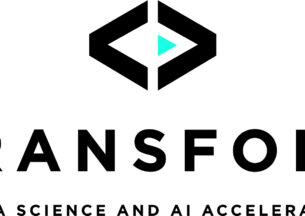Data Value: Assessment and Evolution Workshop
Data and data-driven artificial intelligence are impacting virtually every aspect of society including commerce, science, medicine, government, finance and education. Data drives value in all these various domains, but we know surprisingly little about how value accrues to data as it progresses through its lifecycle — collection, wrangling and integration, modeling and analysis, decision making, and curation.
Data value arises through its ability to foster new products and business models and to enable new discoveries across science, engineering and humanities. However, as a society we are also starting to become aware of the many harms data can bring and their associated risks. When used to inform decisions that affect individuals, for example, data can perpetuate or emphasize existing biases. Combining data from disparate sources can enable previously unseen insights but can also expose private information, either intentionally or unintentionally. Untrustworthy data can also wreak havoc on society, negatively impacting individual lives or putting democracy at risk.
Thus, a challenge we face today is to design systems and data-driven organizations that maximize data’s positive impact while minimizing the negative effects. But we cannot do this without understanding how data contributes to both good and bad outcomes: the crux of the problem is to understand what is the value of data and how does that value change over time, through various processing steps, and when being used in changing contexts.
The aim of this 3-day workshop is to explore these questions about data value and to discuss approaches to answering them. We will approach the questions from different angles: economic theory, statistics, data semantics, privacy, data markets and software platforms, to name a few. We intend to produce a report that incorporates the outcomes of the workshop.
Full agenda and registration at IMSI.
Organizers
Michael Franklin
Michael J. Franklin is the inaugural holder of the Liew Family Chair of Computer Science. An authority on databases, data analytics, data management and distributed systems, he also serves as Senior Advisor to the Provost on Computation and Data Science and is Faculty Co-Director of the Data Science Institute.
Raul Castro Fernandez
In my research I build high-performance systems for discovering, preparing, and processing data. I often use techniques from data management, statistics, and machine learning. At MIT I work with professors Sam Madden and Mike Stonebraker. Before MIT, I completed my PhD at Imperial College London with Peter Pietzuch.

Jason Hartline
Prof. Hartline’s research introduces design and analysis methodologies from computer science to understand and improve outcomes of economic systems. Optimal behavior and outcomes in complex environments are complex and, therefore, should not be expected; instead, the theory of approximation can show that simple and natural behaviors are approximately optimal in complex environments. This approach is applied to auction theory and mechanism design in his graduate textbook Mechanism Design and Approximation which is under preparation.















